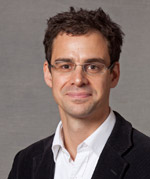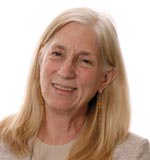Aharon Barak
Aharon Barak, born in Lithuania in 1936, is married and the father of four. He studied law, economics and international relations at the Hebrew University in Jerusalem. Barak received an MA in law in 1958, and a doctorate in 1963. He was appointed Associate Professor of Law at the Hebrew University in 1968 and became Dean of that Faculty in 1974. From 1975-8, he occupied the position of Attorney General of Israel, an appointed and independent position in the Ministry of Justice overseeing the justice system. He was appointed to the Supreme Court of Israel in 1978 and became its President in 1995. His retirement from the Court takes place in September 2006 when he reaches the age of mandatory retirement. He has received number prizes and honours, including the Kaplan Prize for excellence in science and research and the Israel Prize in legal sciences as well as numerous honorary degrees. He is the author of a number of books in Hebrew and in English as well as numerous articles on a wide variety of legal topics. His publications in English include Judicial Discretion, Purposive Interpretation in Law and The Judge in a Democracy, from Princeton University Press.
Laurence Helfer
 Laurence R. Helfer BA (Yale) 1987, JD (NYU Law) 1992, MPA (Princeton) 1992, is Harry R. Chadwick, Sr. Professor of Law and co-director of the Center for International and Comparative Law at Duke University School of Law. His research interests include international human rights, and international intellectual property law, treaty design, international adjudication, interdisciplinary analysis of international law and institutions. He is a member of the Board of Editors of the American Journal of International Law and the Journal of World Intellectual Property. Professor Helfer has authored more than sixty publications on his diverse research interests. He is the coauthor of two books, Human Rights and Intellectual Property: Mapping the Global Interface (Cambridge University Press 2011), and Human Rights (2d ed., Foundation Press, 2009). Other recent publications include: Nature or Nurture? Judicial Lawmaking in the European Court of Justice and the Andean Tribunal of Justice, 64 Int’l Org. 563 (2010) (with Karen Alter); Islands of Effective International Adjudication: Constructing an Intellectual Property Rule of Law in the Andean Community, 103 Am. J. Int’l L. 1 (2009) (with Karen Alter and Florencia Guerzovich); Redesigning the European Court of Human Rights: Embeddedness as a Deep Structural Principle of the European Human Rights Regime, 19 Eur. J. Int’l L. 125 (2008), and Why States Create International Tribunals: A Response to Professors Posner and Yoo, 93 Calif. L. Rev. 899 (2005) (with Anne-Marie Slaughter).
Laurence R. Helfer BA (Yale) 1987, JD (NYU Law) 1992, MPA (Princeton) 1992, is Harry R. Chadwick, Sr. Professor of Law and co-director of the Center for International and Comparative Law at Duke University School of Law. His research interests include international human rights, and international intellectual property law, treaty design, international adjudication, interdisciplinary analysis of international law and institutions. He is a member of the Board of Editors of the American Journal of International Law and the Journal of World Intellectual Property. Professor Helfer has authored more than sixty publications on his diverse research interests. He is the coauthor of two books, Human Rights and Intellectual Property: Mapping the Global Interface (Cambridge University Press 2011), and Human Rights (2d ed., Foundation Press, 2009). Other recent publications include: Nature or Nurture? Judicial Lawmaking in the European Court of Justice and the Andean Tribunal of Justice, 64 Int’l Org. 563 (2010) (with Karen Alter); Islands of Effective International Adjudication: Constructing an Intellectual Property Rule of Law in the Andean Community, 103 Am. J. Int’l L. 1 (2009) (with Karen Alter and Florencia Guerzovich); Redesigning the European Court of Human Rights: Embeddedness as a Deep Structural Principle of the European Human Rights Regime, 19 Eur. J. Int’l L. 125 (2008), and Why States Create International Tribunals: A Response to Professors Posner and Yoo, 93 Calif. L. Rev. 899 (2005) (with Anne-Marie Slaughter).
Jeff King

Jeff King, BA Hons in Phil (Ottawa) 1996, LLB/BCL (McGill) 2002, MSt (Oxford) 2006, DPhil (Oxford) 2009, is a Senior Lecturer at the Faculty of Laws University College London, where he teaches public law, human rights, and legal and constitutional theory. He is Co-Editor of the journal Current Legal Problems. Previously, he was a Fellow and Tutor in law at Balliol College, and CUF Lecturer for the Faculty of Law, University of Oxford (2008-2011), a Research Fellow at the Centre for Socio-Legal Studies, Oxford (2008-2010), a Research Fellow and Tutor in public law at Keble College, Oxford (2007-08), and an attorney at Sullivan & Cromwell LLP in New York City (2003-04). His research and teaching broadly examines doctrinal, theoretical and empirical aspects of comparative public law. He has published articles on the justiciability of resource allocation, judicial restraint, complexity in adjudication, the function of constitutions, the value of legal accountability, proportionality in administrative law, odious debt in international law, and a monograph setting out the case for constitutional social rights and a theory of adjudication in respect of them.
David M. Malone
David M. Malone is President of the International Development Research Centre, a Canadian Crown Corporation that funds policy-relevant research in the Global South. A former Canadian Ambassador to the UN and High Commissioner to India, he is also an occasional scholar who has published twelve books. He serves as Adjunct Professor at the NYU School of Law, Senior Fellow at Massey College in the University of Toronto and on several boards. He is currently working on a book on development ideas and on another addressing recent developments in the UN Security Council.
Margaret Jane Radin
 Margaret Jane Radin is the Henry King Ransom Professor of Law at the University of Michigan Law School. She teaches courses about contracts and patents, as well as those dealing with property theory, the interaction between property and contracts, and the evolution of property and contracts in the digital era. She authored Boilerplate (Princeton University Press, 2012), which explores the problems posed for the legal system by adhesion contracts and how they might be ameliorated. She also has written two books exploring the problems of propertization: Contested Commodities (Harvard University Press, 1996) and Reinterpreting Property (University of Chicago Press, 1993), and coauthored a casebook, Internet Commerce: The Emerging Legal Framework, Second Edition (Foundation Press, 2005). Prof. Radin has taught at the University of Southern California, Stanford University, Harvard University, University of California, Berkeley (Boalt Hall), and New York University. In 2006-2007, she was the inaugural Microsoft Fellow in Law and Public Affairs at Princeton University. In 2008, she became a fellow of the American Academy of Arts and Sciences. Prof. Radin received her AB from Stanford, where she majored in music, and her MFA in music history from Brandeis University. She was advanced to candidacy for the PhD in musicology at UC Berkeley before she changed her career path to law and received her JD from the University of Southern California in 1976. She remains an avid amateur flutist.
Margaret Jane Radin is the Henry King Ransom Professor of Law at the University of Michigan Law School. She teaches courses about contracts and patents, as well as those dealing with property theory, the interaction between property and contracts, and the evolution of property and contracts in the digital era. She authored Boilerplate (Princeton University Press, 2012), which explores the problems posed for the legal system by adhesion contracts and how they might be ameliorated. She also has written two books exploring the problems of propertization: Contested Commodities (Harvard University Press, 1996) and Reinterpreting Property (University of Chicago Press, 1993), and coauthored a casebook, Internet Commerce: The Emerging Legal Framework, Second Edition (Foundation Press, 2005). Prof. Radin has taught at the University of Southern California, Stanford University, Harvard University, University of California, Berkeley (Boalt Hall), and New York University. In 2006-2007, she was the inaugural Microsoft Fellow in Law and Public Affairs at Princeton University. In 2008, she became a fellow of the American Academy of Arts and Sciences. Prof. Radin received her AB from Stanford, where she majored in music, and her MFA in music history from Brandeis University. She was advanced to candidacy for the PhD in musicology at UC Berkeley before she changed her career path to law and received her JD from the University of Southern California in 1976. She remains an avid amateur flutist.
Wojciech Sadurski
 Wojciech Sadurski, PhD (Warsaw) 1977, is Challis Professor of Jurisprudence at the University of Sydney Law School. He taught at several universities around the world including in the United States (Cornell Law School, Cardozo Law School) and in Europe (Trento, Paris, Warsaw), and was Professor of Legal Theory and Philosophy of Law in the European University Institute in Florence (1999-2009). He specialises in philosophy of law, political theory, constitutional theory and comparative constitutional law; his most recent books include Rights Before Courts: A Study of Constitutional Courts in Postcommunist States of Central and Eastern Europe (Springer 2005) and Equality and Legitimacy (Oxford University Press 2008). Member of a number of governing and programme bodies of think tanks and NGOs dealing with human rights and democracy promotion, he is currently Chairman of Academic Advisory Board of the Community of Democracies. His full profile and list of publications is available at http://sydney.edu.au/law/about/staff/WojciechSadurski/index.shtml.
Wojciech Sadurski, PhD (Warsaw) 1977, is Challis Professor of Jurisprudence at the University of Sydney Law School. He taught at several universities around the world including in the United States (Cornell Law School, Cardozo Law School) and in Europe (Trento, Paris, Warsaw), and was Professor of Legal Theory and Philosophy of Law in the European University Institute in Florence (1999-2009). He specialises in philosophy of law, political theory, constitutional theory and comparative constitutional law; his most recent books include Rights Before Courts: A Study of Constitutional Courts in Postcommunist States of Central and Eastern Europe (Springer 2005) and Equality and Legitimacy (Oxford University Press 2008). Member of a number of governing and programme bodies of think tanks and NGOs dealing with human rights and democracy promotion, he is currently Chairman of Academic Advisory Board of the Community of Democracies. His full profile and list of publications is available at http://sydney.edu.au/law/about/staff/WojciechSadurski/index.shtml.
Lionel Smith
 Lionel Smith, B.Sc. (Toronto) 1986, LL.B. (Western) 1989, LL.M. (Cantab.) 1990, D.Phil. (Oxon.) 1995, LL.B. (Montréal) 2006, is James McGill Professor of Law and Director of the Paul-André Crépeau Centre of Private and Comparative Law at the Faculty of Law, McGill University. He is the author of The Law of Tracing (OUP, 1997), a co-author of Waters’ Law of Trusts in Canada, 3rd ed. (Carswell, 2005), and a co-author and the English reporter of Commercial Trusts in European Private Law (CUP, 2005; reprinted in paperback, 2009). He has also written numerous articles, book chapters, notes and reviews, and his scholarship has been relied upon by the Supreme Court of Canada, the High Court of Australia, and the House of Lords. He is a member of the International Academy of Comparative Law, the American Law Institute, the European Law Institute, the International Academy of Estate and Trust Law and the Bar of Alberta.
Lionel Smith, B.Sc. (Toronto) 1986, LL.B. (Western) 1989, LL.M. (Cantab.) 1990, D.Phil. (Oxon.) 1995, LL.B. (Montréal) 2006, is James McGill Professor of Law and Director of the Paul-André Crépeau Centre of Private and Comparative Law at the Faculty of Law, McGill University. He is the author of The Law of Tracing (OUP, 1997), a co-author of Waters’ Law of Trusts in Canada, 3rd ed. (Carswell, 2005), and a co-author and the English reporter of Commercial Trusts in European Private Law (CUP, 2005; reprinted in paperback, 2009). He has also written numerous articles, book chapters, notes and reviews, and his scholarship has been relied upon by the Supreme Court of Canada, the High Court of Australia, and the House of Lords. He is a member of the International Academy of Comparative Law, the American Law Institute, the European Law Institute, the International Academy of Estate and Trust Law and the Bar of Alberta.
Zhenmin Wang
Zhenmin Wang, Professor and Dean of Tsinghua University School of Law, received his LL.B. in Zhengzhou University (1989) , LL.M. and PhD in Law from Renmin (People's) University of China (1992 and 1995). He also studied in the Law Faculty of Hong Kong University from 1993 to 1995. After completing his study in HKU, Professor Wang joined Tsinghua Unviersity in July 1995. Since then, he has been the Assistant Chair, Deputy Chair and Vice Dean of the Faculty of Law. In July 2008 he was appointed Dean of the Faculty of Law at Tsinghua University.
In 2004 he was appointed member of the Committee for the Macao Basic Law under the Standing Committee of the Chinese National People’s Congress, and concurrently a member of the paralleling Committee for Hong Kong Basic Law in 2006. He is also a Senior Research Fellow of the Hong Kong and Macao Institute under the Development Research Center of the State Council (since 2003). In 2007 he was elected Deputy to the 13th Beijing City People’s Congress.
Professor Wang serves an executive director of the China Law Society and an executive director of the National Taiwan Society. He is also Vice President of China Association of Constitutional Law. In his teaching and research areas, focus is on constitutional and administrative law, the Basic Laws of HK and Macao, and Taiwan issues. He is the author of Central-Special Administrative Region Relationship in China——from a Legal Perspective (Beijing, 2002) and Constitutional Review in China (Beijing, 2004). He has published over 50 articles and presented papers at many regional and international conferences on Chinese constitutional law, legal reform and Hong Kong / Macao Basic Law. He is a Member of the Forum of Young Global Leaders of World Economic Forum.
He was a Fulbright Visiting Scholar at Harvard Law School in 2000-2001. He is Sir Y K Pao Chair Professor in Constitutional Law at School of Law of Ningbo University. He was also visiting professor at Universit Paris II, France, William S. Richardson School of Law of University of Hawai‘i at Manoa, Dedman School of Law of Southern Methodist University (USA), etc.

 Laurence R. Helfer BA (Yale) 1987, JD (NYU Law) 1992, MPA (Princeton) 1992, is Harry R. Chadwick, Sr. Professor of Law and co-director of the
Laurence R. Helfer BA (Yale) 1987, JD (NYU Law) 1992, MPA (Princeton) 1992, is Harry R. Chadwick, Sr. Professor of Law and co-director of the 
 Margaret Jane Radin is the Henry King Ransom Professor of Law at the University of Michigan Law School. She teaches courses about contracts and patents, as well as those dealing with property theory, the interaction between property and contracts, and the evolution of property and contracts in the digital era. She authored Boilerplate (Princeton University Press, 2012), which explores the problems posed for the legal system by adhesion contracts and how they might be ameliorated. She also has written two books exploring the problems of propertization: Contested Commodities (Harvard University Press, 1996) and Reinterpreting Property (University of Chicago Press, 1993), and coauthored a casebook, Internet Commerce: The Emerging Legal Framework, Second Edition (Foundation Press, 2005). Prof. Radin has taught at the University of Southern California, Stanford University, Harvard University, University of California, Berkeley (Boalt Hall), and New York University. In 2006-2007, she was the inaugural Microsoft Fellow in Law and Public Affairs at Princeton University. In 2008, she became a fellow of the American Academy of Arts and Sciences. Prof. Radin received her AB from Stanford, where she majored in music, and her MFA in music history from Brandeis University. She was advanced to candidacy for the PhD in musicology at UC Berkeley before she changed her career path to law and received her JD from the University of Southern California in 1976. She remains an avid amateur flutist.
Margaret Jane Radin is the Henry King Ransom Professor of Law at the University of Michigan Law School. She teaches courses about contracts and patents, as well as those dealing with property theory, the interaction between property and contracts, and the evolution of property and contracts in the digital era. She authored Boilerplate (Princeton University Press, 2012), which explores the problems posed for the legal system by adhesion contracts and how they might be ameliorated. She also has written two books exploring the problems of propertization: Contested Commodities (Harvard University Press, 1996) and Reinterpreting Property (University of Chicago Press, 1993), and coauthored a casebook, Internet Commerce: The Emerging Legal Framework, Second Edition (Foundation Press, 2005). Prof. Radin has taught at the University of Southern California, Stanford University, Harvard University, University of California, Berkeley (Boalt Hall), and New York University. In 2006-2007, she was the inaugural Microsoft Fellow in Law and Public Affairs at Princeton University. In 2008, she became a fellow of the American Academy of Arts and Sciences. Prof. Radin received her AB from Stanford, where she majored in music, and her MFA in music history from Brandeis University. She was advanced to candidacy for the PhD in musicology at UC Berkeley before she changed her career path to law and received her JD from the University of Southern California in 1976. She remains an avid amateur flutist. Wojciech Sadurski, PhD (Warsaw) 1977, is Challis Professor of Jurisprudence at the University of Sydney Law School. He taught at several universities around the world including in the United States (Cornell Law School, Cardozo Law School) and in Europe (Trento, Paris, Warsaw), and was Professor of Legal Theory and Philosophy of Law in the European University Institute in Florence (1999-2009). He specialises in philosophy of law, political theory, constitutional theory and comparative constitutional law; his most recent books include Rights Before Courts: A Study of Constitutional Courts in Postcommunist States of Central and Eastern Europe (Springer 2005) and Equality and Legitimacy (Oxford University Press 2008). Member of a number of governing and programme bodies of think tanks and NGOs dealing with human rights and democracy promotion, he is currently Chairman of Academic Advisory Board of the Community of Democracies. His full profile and list of publications is available at
Wojciech Sadurski, PhD (Warsaw) 1977, is Challis Professor of Jurisprudence at the University of Sydney Law School. He taught at several universities around the world including in the United States (Cornell Law School, Cardozo Law School) and in Europe (Trento, Paris, Warsaw), and was Professor of Legal Theory and Philosophy of Law in the European University Institute in Florence (1999-2009). He specialises in philosophy of law, political theory, constitutional theory and comparative constitutional law; his most recent books include Rights Before Courts: A Study of Constitutional Courts in Postcommunist States of Central and Eastern Europe (Springer 2005) and Equality and Legitimacy (Oxford University Press 2008). Member of a number of governing and programme bodies of think tanks and NGOs dealing with human rights and democracy promotion, he is currently Chairman of Academic Advisory Board of the Community of Democracies. His full profile and list of publications is available at  Lionel Smith, B.Sc. (Toronto) 1986, LL.B. (Western) 1989, LL.M. (Cantab.) 1990, D.Phil. (Oxon.) 1995, LL.B. (Montréal) 2006, is James McGill Professor of Law and Director of the Paul-André Crépeau Centre of Private and Comparative Law at the Faculty of Law, McGill University. He is the author of The Law of Tracing (OUP, 1997), a co-author of Waters’ Law of Trusts in Canada, 3rd ed. (Carswell, 2005), and a co-author and the English reporter of Commercial Trusts in European Private Law (CUP, 2005; reprinted in paperback, 2009). He has also written numerous articles, book chapters, notes and reviews, and his scholarship has been relied upon by the Supreme Court of Canada, the High Court of Australia, and the House of Lords. He is a member of the International Academy of Comparative Law, the American Law Institute, the European Law Institute, the International Academy of Estate and Trust Law and the Bar of Alberta.
Lionel Smith, B.Sc. (Toronto) 1986, LL.B. (Western) 1989, LL.M. (Cantab.) 1990, D.Phil. (Oxon.) 1995, LL.B. (Montréal) 2006, is James McGill Professor of Law and Director of the Paul-André Crépeau Centre of Private and Comparative Law at the Faculty of Law, McGill University. He is the author of The Law of Tracing (OUP, 1997), a co-author of Waters’ Law of Trusts in Canada, 3rd ed. (Carswell, 2005), and a co-author and the English reporter of Commercial Trusts in European Private Law (CUP, 2005; reprinted in paperback, 2009). He has also written numerous articles, book chapters, notes and reviews, and his scholarship has been relied upon by the Supreme Court of Canada, the High Court of Australia, and the House of Lords. He is a member of the International Academy of Comparative Law, the American Law Institute, the European Law Institute, the International Academy of Estate and Trust Law and the Bar of Alberta.